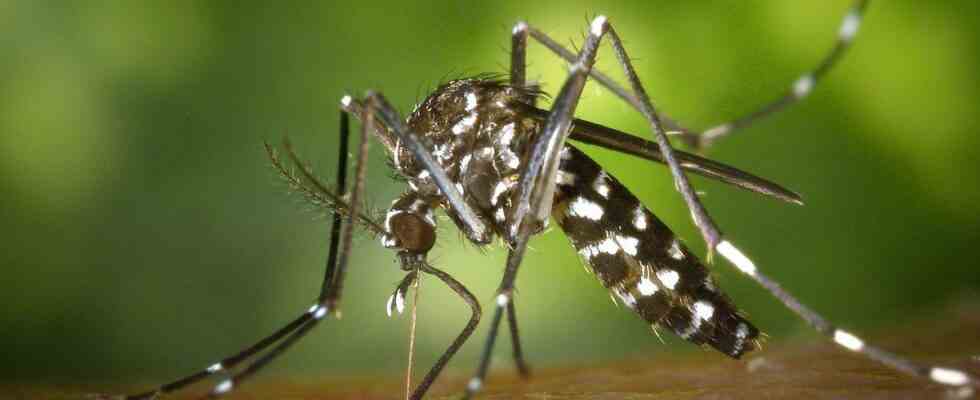At the end of the night, the inhabitants of the Salvetat-Saint-Gilles, to the west of Toulouse, we could see a vehicle passing through the district located near the rugby stadium, distributing a product, as well as people in overalls. It is not a hallucination, nor a group of invaders, but the consequence of cases of dengue fever identified in the sector.
With the return from vacation and the hot weather, the current period is the most at risk for the multiplication of the virus which can proliferate thanks to mosquitoes. “This is the first time since the beginning of the year that we have identified an indigenous case in Haute-Garonne, that is to say that the people concerned have not traveled to a contaminated area”, indicates Jean- Sébastien Dehecq, sanitary engineer and entomologist at the regional health agency who led the information and mosquito control operation.
The couple concerned, taken by a big blow of fatigue, did not set foot outside France, but the tiger mosquitoes, which lately swarm in the manholes of the gutters, are responsible for carrying the virus, after the incubated for a week. No reports have been made within the range of the insects, which fly within a radius of 50 meters. It must be said that dengue fever can pass for an influenza-like illness. “The fatigue comes in one to two hours, very suddenly, accompanied by joint pain. There is a particular symptom, a feeling of pain behind the eyes, but it is not systematic, ”continues Jean-Sébastien Dehecq.
Thirteen cases in Haute-Garonne this year
In fact, the health authorities have called on the healthcare staff in the sector to be vigilant so as not to miss out over the next few days and avoid an upsurge in cases. In Haute-Garonne, since the beginning of the year, 13 other cases of dengue have been counted, but all of them concerned people returning from risk areas. Over the whole region, it is more than thirty, including three natives with that of Plaisance.
To limit the proliferation of cases, the Regional Health Agency calls on the inhabitants of the sectors concerned to cover themselves and to empty the water areas where the larvae have been multiplying for a few days, even when it is not raining.

